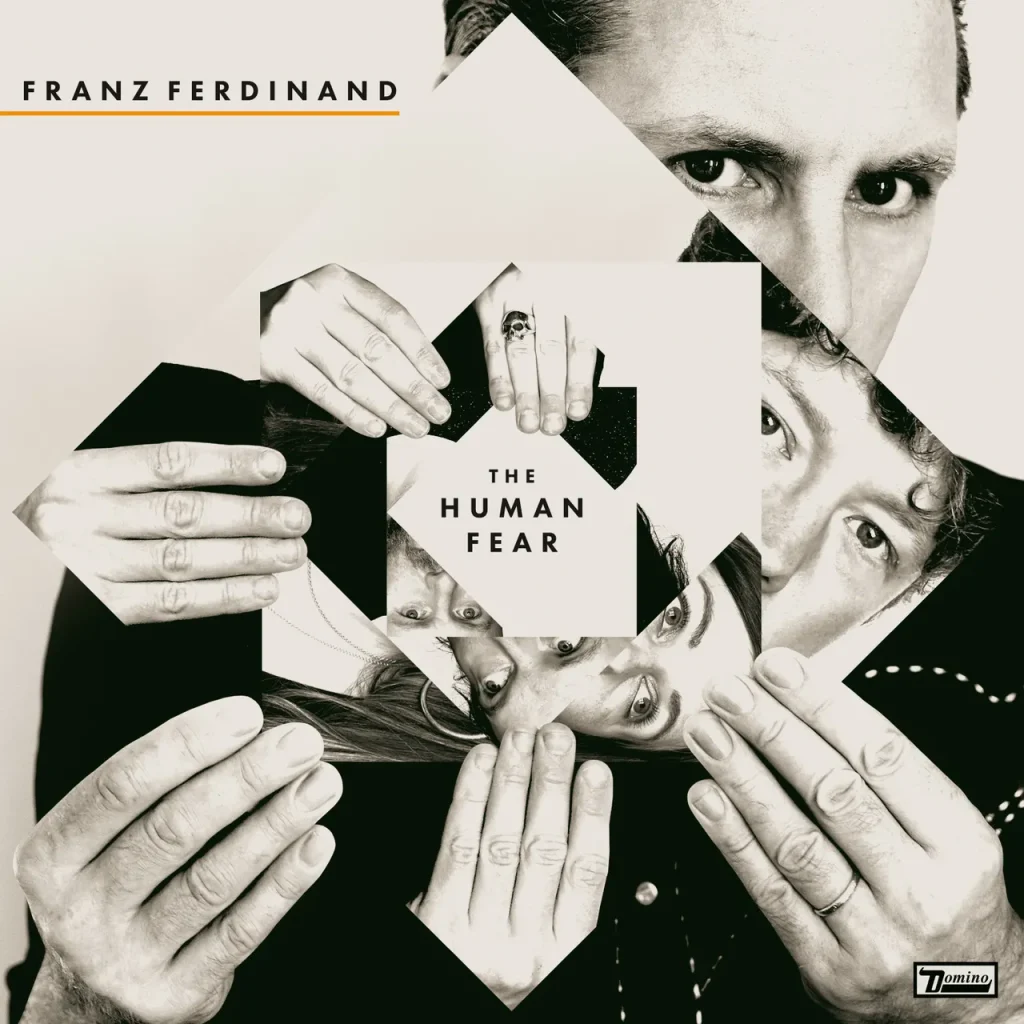Franz Ferdinand – The Human Fear
Jim Morrison – yes, the one from The Doors – attributed to fear the potential to become a free person: “Expose yourself to your deepest fear. After that, fear has no power, and the fear of freedom shrinks and vanishes – you are free.”
Jim wasn’t the only artist obsessed with fear: it’s an ever-rewarding theme in any art form. The members of Franz Ferdinand understand this well, so expectations are high with the announcement of “The Human Fear,” the long-awaited follow-up to “Always Ascending” from 2018. It’s the sixth album released by the Scottish band since their formation in 2001. Such a steady output suggests that every album has been carefully considered, which is fine. Quality knows no time limits.
The first glimpse of this album came with the single “Night or Day.” Despite the praise from various radio DJs (because it’s the new Franz Ferdinand, thus sealing their canonization), this is not the record we were hoping for. We hoped for lyrics sung by Alex Kapranos in his plaintive yet ever-ironic tone. We hoped for at least one classic like “Take Me Out,” with its metaphor of two snipers waiting for each other’s first move like a pair of lovers. Lyrics, in short, with a twist, a plot turn, all set to sharp guitar riffs.
We secretly hoped for an album like “You Could Have It So Much Better.” We should indeed have gotten something better. “The Human Fear” feels like a routine trick, a formality – eleven tracks with no urge to show Franz Ferdinand that, twenty years ago, was still considered groundbreaking. Franz Ferdinand is the embodiment of the ultimate indie band you cited as a statement to show you were far beyond the mainstream Britpop dominating the top forty.
Today’s Franz Ferdinand sounds like a settled man – comfortable, if you will, save for the occasional outburst (“The Birds,” also the closing track). Immediately, you sense the struggle this brings: at times, they seem willing, but it inevitably fizzles out.
Franz rightly visits the doctor, only to leave us confused, wondering what to make of this: the patient who refuses to leave his hospital bed under the motto “I have nurses I can talk to and thermometers to hold.” Still, this is better than the obligatory lines Kapranos sings in “Audicious” as a call to stay brave: “So don’t stop feeling audacious, there’s no one to save us. So just carry on.” An almost fatalistic lyric, straightforward and packaged in a song that, unfortunately, sinks hopelessly into mediocrity during the choruses.
And that fear? It surfaces in “Hooked.” “I’ve got the human fear and that’s alright. Everybody’s got the human fear and that’s alright with me.” Later in the lyrics, it becomes clear that it’s about the fear of love while you’re already “hooked.” It’s emblematic of the album’s level.
It feels as if the band is bidding farewell to their early fans. The women with black-rimmed eyes, for instance, claimed the spots in front of festival stages and sang along with every lyric to show how well they understood it all. “Black eyelashes, come back,” Kapranos sings on a Greek-inspired dance tune. But they don’t return. The audience is now deemed to have grown up – an audience that doesn’t care as much anymore, that finds it all fine as it is.
It all feels just a bit too easy, especially when you consider that we’ve waited six years for this album. We’ll gladly wait another six years. Hopefully, by then, the members of Franz Ferdinand will feel free enough to truly surprise us again. Because this can be better. (6/10) (Domino)
![]()





